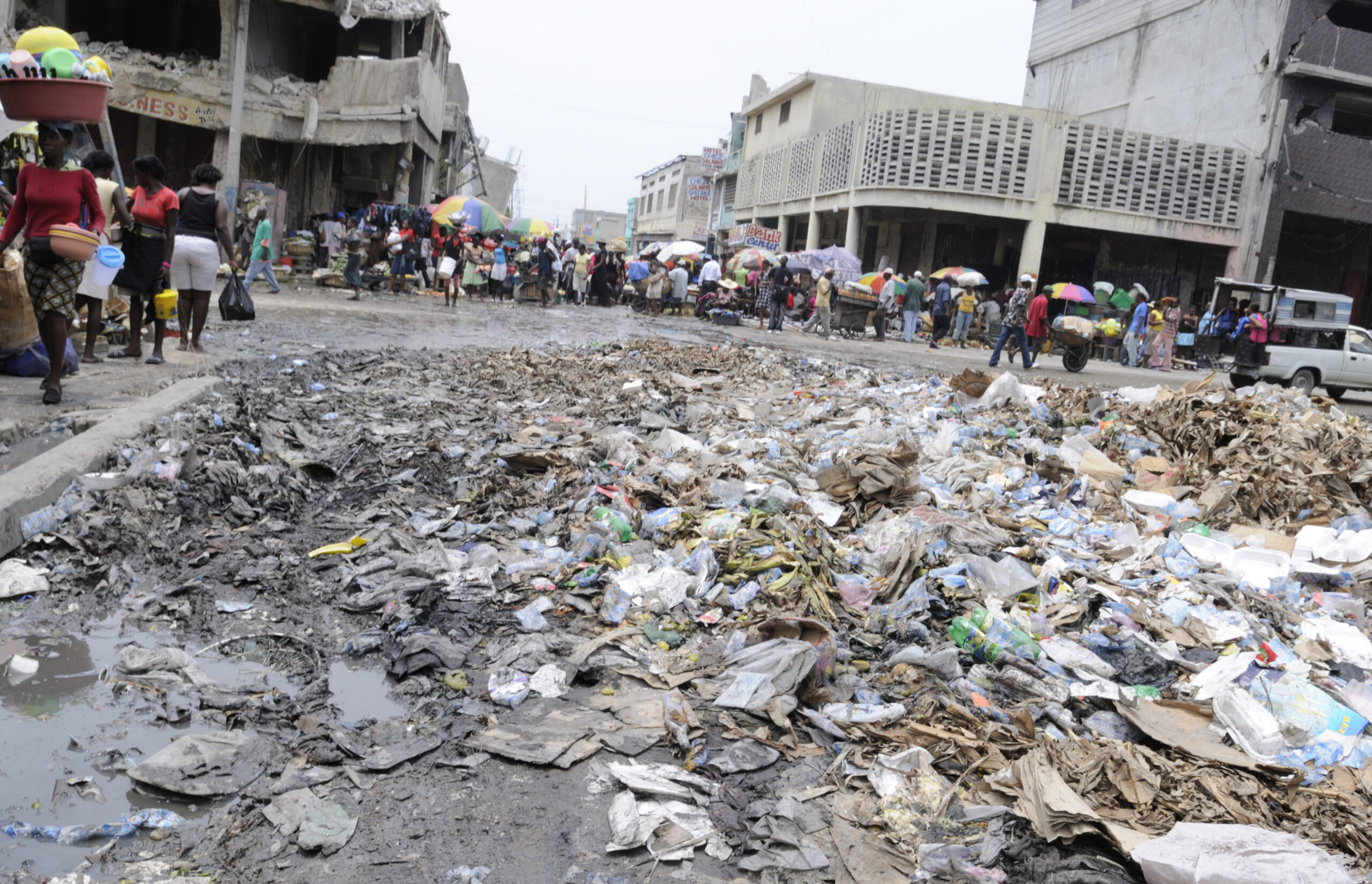In light of President Jovenel Moise’s assassination, Fr Bobby Gilmore reflects on Haiti’s vulnerability, endless underdevelopment and destitution. ‘Haitianisation’ has a long shadow, he suggests.
A runaway slave was, in fact a thief since he stolen his master’s property-himself. (Edward P. Jones – The Known World)
Near the town of Montpelier on the plateau above Montego Bay in Jamaica sits an old military camp dating back to British rule built during slave times. Over time it has been decommissioned and recommissioned.
Since Haitian Independence in 1804 inhabitants of Montpelier have become used to the intermittent arrival of military personnel to re-open the camp, clean it up and make it habitable.
Each time they see the military arrive they assume that Haiti is in trouble again either from a coup, hurricane or earthquake. Soon Haitian refugees will be arriving.
Haiti, like many other islands in the Caribbean, is vulnerable both to history and geography. Both, according to a new word in the Caribbean dictionary, have brought about haitianisation – endless underdevelopment and destitution for the people of Haiti.
Other islands in the Caribbean experience hurricanes and occasionally earthquakes. But, they do not experience the devastation of Haiti. At least a quarter of its population is destitute. Haphazard attempts at infrastructural development, homes constructed from the aftermath of the last disaster, hand-to-mouth subsistence facilitates the devastation of hurricanes becoming disasters with a high human cost.
The country’s leadership has failed the people repeatedly – over time Haiti has experienced 37 coups. At this moment amid a crisis there is no legitimate government due to election postponements.
The Dominican Republic shares the island of Hispaniola with Haiti. Why is the Dominican Republic a progressive stable democracy, and Haiti a waste land?
Haiti got independence from France in 1804 after a bitter revolution. After the slave revolution the first black republic in the Americas was created. Haitians liberated themselves from the tyranny of French rule and the shackles of slavery. France had benefitted enormously from its rule in Haiti. It was the pearl in the crown of French colonialism. One would have expected that after self-rule Haiti would have prospered from the ownership of its resources.
However, institutional slavery did not allow for liberation. Slaves and the system of slavery were structured in such a way that a slave was the property of the slave-owner. The notion of liberation or freedom meant theft of property: himself – the slave stole himself.
In other words, a slave freeing himself/herself was stealing his master’s property. A good example of such a paradigm was at the abolition of slavery in Jamaica the British government remunerated the slave-owner for the loss of property. The slave, producer of wealth, was abandoned. It was akin to a prisoner paying the prison for releasing him having served his sentence.
In line with the policy of the free slave judged to be a thief having freed himself, France extended this paradigm to the new nation of Haiti as an entity, in liberating itself from France was stealing from France, and therefore was bound to make restitution to France.
In that light France imposed a fine of 90 million francs to be paid in gold. These repayments to France consumed more than 80% of Haiti’s national budget until the debt was paid off in 1947. In modern estimates the 90 million in gold francs would be the equivalent of US$20 billion. So, haitianisation has a long shadow.
For a long time, Haiti has been the recipient of international aid. If aid was solution to Haiti’s problems Haiti should be a shining democracy. Too frequently, not just in Haiti, aid has maintained corrupt cartels in power that are in connivance with subsidised farm lobbies in developed donor nations.
The primary aim of aid, except in times of disaster, should be the development of indigenous potential particularly in the area of food production, infrastructure, education, health, sanitation, policing, law and order and the administration of justice.
In modern times aid is used by some off-shore elites as a haven of respectability. They seek recognition for themselves making the poor objects of their need rather than subjects of their own liberation.
Also, there is the case for reparations to France. The latter, as is also the case of other European colonisers, benefitted from slavery in their development. It is painful to listen to modern populist nationalists claiming recognition for their country’s abolition of slavery. If they wish to claim recognition for anything it should be for reparations for slavery. Reparation is an obligation in justice.
Haiti needs justice from France and needs it now. There is little hope of that. In modern as in slave times corporate power holds sway – the public bailed the banks – government bailed Apple against the wishes of the public.
When we think of global poverty we readily think of hunger, disease, homelessness, illiteracy, dirty water and a lack of education, but very few of us immediately think about the global poor’s chronic vulnerability to violence – It turns out that you can provide all manner of goods and services to the poor, as good people have been doing for decades, but if you are not restraining the bullies in the community from violence and theft-then we are going to find the outcome of efforts quiet disappointing.
(The Locust Effect, G. A. Haugen)
News of Haitian President Jovenel Moise’s assassination is reported in all today’s newspapers. No doubt the People of Montpelier will not be surprised to see the Jamaican military arrive to refurbish the old barracks awaiting the arrival of Haitian refugees following the latest unrest in Haiti. Pray for the people of Haiti.

